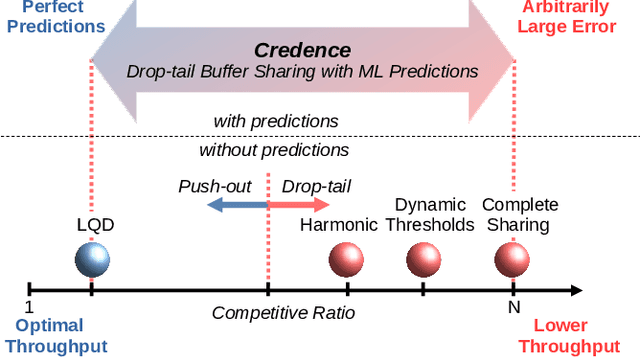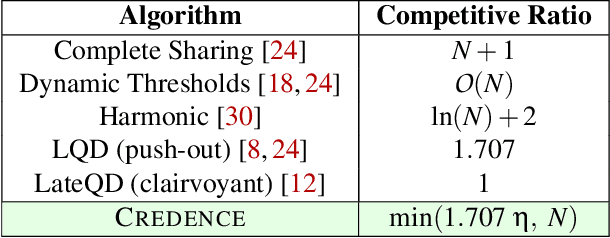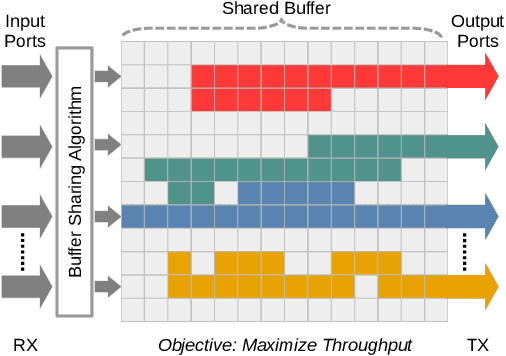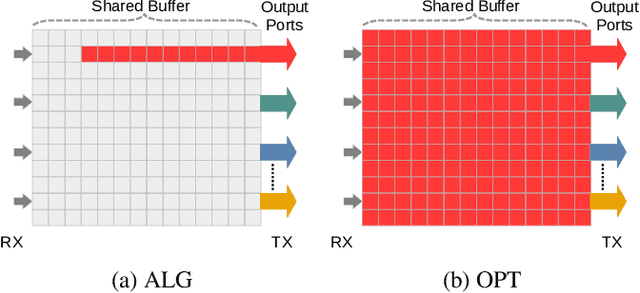Maciej Pacut
Credence: Augmenting Datacenter Switch Buffer Sharing with ML Predictions
Jan 05, 2024



Abstract:Packet buffers in datacenter switches are shared across all the switch ports in order to improve the overall throughput. The trend of shrinking buffer sizes in datacenter switches makes buffer sharing extremely challenging and a critical performance issue. Literature suggests that push-out buffer sharing algorithms have significantly better performance guarantees compared to drop-tail algorithms. Unfortunately, switches are unable to benefit from these algorithms due to lack of support for push-out operations in hardware. Our key observation is that drop-tail buffers can emulate push-out buffers if the future packet arrivals are known ahead of time. This suggests that augmenting drop-tail algorithms with predictions about the future arrivals has the potential to significantly improve performance. This paper is the first research attempt in this direction. We propose Credence, a drop-tail buffer sharing algorithm augmented with machine-learned predictions. Credence can unlock the performance only attainable by push-out algorithms so far. Its performance hinges on the accuracy of predictions. Specifically, Credence achieves near-optimal performance of the best known push-out algorithm LQD (Longest Queue Drop) with perfect predictions, but gracefully degrades to the performance of the simplest drop-tail algorithm Complete Sharing when the prediction error gets arbitrarily worse. Our evaluations show that Credence improves throughput by $1.5$x compared to traditional approaches. In terms of flow completion times, we show that Credence improves upon the state-of-the-art approaches by up to $95\%$ using off-the-shelf machine learning techniques that are also practical in today's hardware. We believe this work opens several interesting future work opportunities both in systems and theory that we discuss at the end of this paper.
Multi-GPU parallel memetic algorithm for capacitated vehicle routing problem
Mar 06, 2017



Abstract:The goal of this paper is to propose and test a new memetic algorithm for the capacitated vehicle routing problem in parallel computing environment. In this paper we consider simple variation of vehicle routing problem in which the only parameter is the capacity of the vehicle and each client only needs one package. We present simple reduction to prove the existence of polynomial-time algorithm for capacity 2. We analyze the efficiency of the algorithm using hierarchical Parallel Random Access Machine (PRAM) model and run experiments with code written in CUDA (for capacities larger than 2).
 Add to Chrome
Add to Chrome Add to Firefox
Add to Firefox Add to Edge
Add to Edge